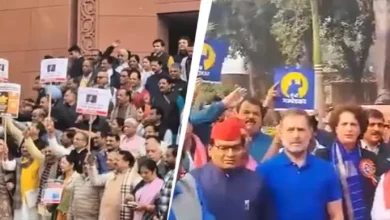24 years since Indian Army faces defeat, withdrawal from Sri Lanka
From 1983 to 2009, RAW provided training and weapons to Tamil Tigers
 Islamabad: It has been 24 years since the Indian Army withdrew after its defeat by Sri Lanka as India’s role in the Lanka LTTE war is a clear proof of sponsoring terrorism in neighboring countries.
Islamabad: It has been 24 years since the Indian Army withdrew after its defeat by Sri Lanka as India’s role in the Lanka LTTE war is a clear proof of sponsoring terrorism in neighboring countries.
According to a report of Kashmir Media Service, Indian notorious Research and Analysis Wing (RAW), Indian secret agency, from 1983 to 2009 provided training and weapons to 20,000 Tamil Tigers, in June 1987, ‘Operation Azadi’, was launched against the Tamil Tigers of Sri Lanka and Indian Navy and Air Force provided arms and aid to the Tamil rebels.
Despite Sri Lanka’s protests, India did not stop supporting the Tamil rebels. In July 1987, in the name of peace, 80,000 Indian troops were landed in Jaffna by the Jabra agreement with Sri Lanka.
Due to general, looting and collective abuses, soon a war broke out between the Indian Army and the LTTE in which the Indian Army faced a shameful defeat.
As a result of Operation Poon, 27,000 Sri Lankan citizens, 5,000 Sri Lankan soldiers and more than 3,000 Indian soldiers became fodder of the dream of a united India.
In Sri Lanka, the Indian army committed serious violations of human rights and war crimes, which include looting, massacres and mass atrocities.
It should be noted that Kalvin Rajaratnam, who committed suicide on Rajiv Gandhi in 1991, was also killed by Indian soldiers in Velvetu Thrai. was abused, under the double game policy India used Sri Lanka and Tamil rebels for its nefarious purposes, Indian military’s unnecessary interference in Sri Lanka’s internal affairs prolonged the civil war for the next 20 years.








